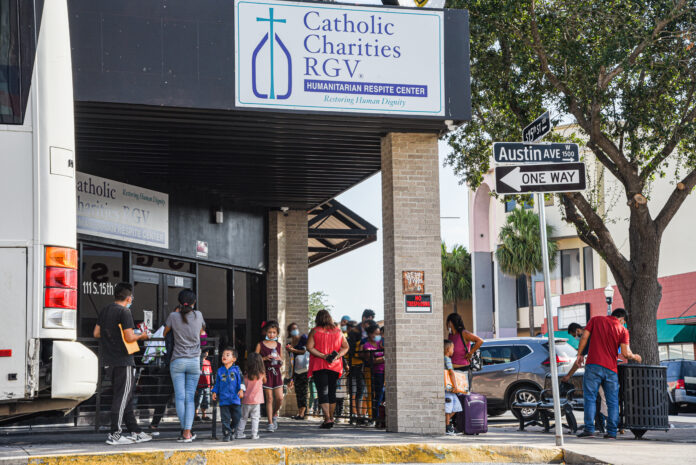
A federal judge ruled to extend a temporary restraining order barring the governor from enforcing his plans to stop transportation of migrants by anyone other than law enforcement officers in Texas.
The decision came a day after Catholic Charities of the Rio Grande Valley submitted an amicus brief in opposition of the governor’s order.
U.S. District Judge Kathleen Cardone made the decision to extend the temporary restraining order by 14 days.
Signed July 28 yet never enforced, Abbott’s order directed Texas Department of Public Safety troopers to stop and impound vehicles transporting migrants by drivers who were not law enforcement officers.
New details filed in the amicus brief revealed DPS planned to station a trooper outside the Catholic Charities-run Humanitarian Respite Center, where over 1,000 migrants are dropped off every day, in downtown McAllen to stop volunteers from driving migrants.
The afternoon after the governor signed the order, a DPS director met in person with Sister Norma Pimentel, CCRGV executive director, and Rev. Mario Alberto Avilés, Auxiliary Bishop of Brownsville.
“He further stated that once the Order went into effect he would put a patrol car by the entrance of the Respite Center to watch for and identify people when they leave, and stop any vehicle suspected of transporting migrants,” Pimentel’s six-page declaration stated. “He informed Bishop Avilés and me that if a driver did not follow an order to return with the migrants to the Humanitarian Respite Center, Department of Public Safety officers would impound the vehicle.”
Pimentel stressed the need to transport migrants who test positive for COVID-19, a service they provide in lack of testing prior to release from federal custody, to quarantine them in area hotels or other sites.
Migrant mothers and children also rely on ground transportation to receive medical attention. Drivers also provide safe transportation to the McAllen airport and overflow sites.
“If we cannot provide humanitarian aid, it is my understanding that these families would likely be left to their own devices on the street, without access to food, shelter and medical care,” Pimentel stressed.
If the order can be enforced, the executive director said, it could keep them from providing care to migrants and protecting the health of the local community.
Editor’s note: This story was updated to correct information about the agency directed in the governor’s order and a director who was in touch with NGO representatives.




